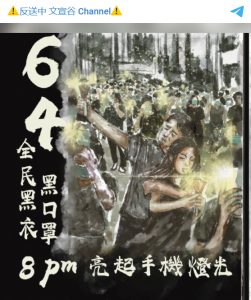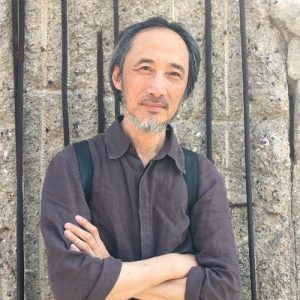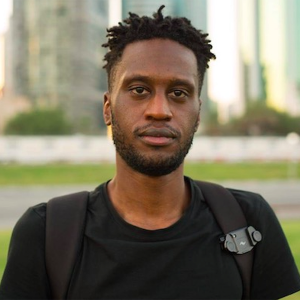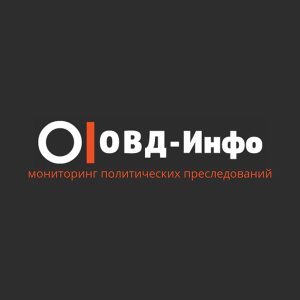Banned by Beijing: How can Europe stand up for Uyghurs?
“Not speaking out causes guilt; but speaking out causes fear.” – anonymous Uyghur woman
Despite being far outside China’s borders, in a region synonymous with human rights, rule of law, and democracy, many Uyghurs in Europe refrain from publicly expressing concerns for their friends and family in Xinjiang or from sharing their own. To what extent is the Chinese Communist Party (CCP) working to intimidate, silence, and discredit Uyghurs in Europe? And what can be done to protect their right to free expression?
Marking the launch of our latest report, this virtual event chaired by Index on Censorship’s Flo Marks examines the scope and scale of the Chinese Communist Party’s interference in Uyghurs’ right to freedom of expression in Europe.
Meet the Speakers
Dolkun Isa
Dolkun Isa is the President of the World Uyghur Congress and Vice President of the Unrepresented Nations and Peoples Organization (UNPO). He was a former student-leader of pro-democracy demonstrations at Xinjiang University in 1988 and founded the Students’ Science and Culture Union at the university in 1987 working on programs to eliminate illiteracy, promote science and lead other students in East Turkestan. He was then dismissed from university.
After enduring persecution from the Chinese government, Isa fled China in 1994 and sought asylum in Europe, and became a citizen of Germany in 2006. He has since been presenting Uyghur human rights issues to the UN Human Rights Council, European Parliament, European governments and international human rights organizations. He has worked to mobilize the Uyghur diaspora community to collectively advocate for their rights and the rights of the Uyghurs in East Turkistan.
Isobel Cockerell
Isobel Cockerell is an award-winning British journalist. Since October 2018 she has been a reporter for Coda Story, covering disinformation, the war on science and authoritarian technology. She has also written and worked as a radio reporter and video journalist covering politics, migration, LGBTQ issues, environmental affairs and culture for platforms such as WIRED, The Daily Beast, the Huffington Post, USA Today, Rappler and Eurasianet.
In 2020 she won the European press prize distinguished reporting award for a multimedia project she reported and produced for Coda in collaboration with WIRED on Uyghur women fighting a digital resistance against China’s surveillance.
She is a graduate of Columbia Journalism school.
Nus Ghani MP
Nusrat Ghani is the MP for Wealden. A former Transport Minister, she is now Vice-Chair of the 1922 Committee and an active member of the influential Business, Energy and Industrial Strategy Committee. Here, she led an inquiry on supply chain transparency which exposed slave labour in UK value chains and the data harvesting of British consumers. For this, she was sanctioned by the Chinese Communist Party (CCP) in March 2021, the only woman in Parliament who was, in an unprecedented move by the CCP to intimidate British MPs.
Nusrat was instrumental in leading on the Genocide Amendment to the UK’s flagship Trade Bill, aiming to stop the British Government pursuing preferential trade agreements with countries committing real time genocide. She led a campaign which resulted in Parliament unanimously declaring the markers of genocide are being met in Xinjiang. She is an active member of the Inter Parliamentary Alliance on China (IPAC).
Nusrat has spoken at numerous academic and public events on the nature of campaigning within Parliament to plug the policy gaps around declaring genocide, guaranteeing supply chain transparency, and pushing for closer scrutiny of British citizens’ data being harvested.
As a former member of both the Home Affairs Select Committee and the Foreign Affairs Committee, she covered issues such as such as security, policing, counterterrorism strategies and antisemitism. Nusrat is also the UK representative to the NATO Parliamentary Assembly. She was nominated for the 2021 NATO PA Women for Peace and Security Award and came runner up to Nancy Pelosi, Speaker of the United States House of Representatives.
Flo Marks
Flo Marks is currently a Researcher at Index on Censorship and has been central to the research and writing of the February 2022 Uyghur Report. She has her work published in the LA Review of Books, Exposé as well as Index on Censorship. Her focus thus has been on raising attention to mass atrocity crimes, CCP influence in Europe, protecting the rights of Chinese dissidents, and empowering the voices of minorities.
She is also a politics BA student at the University of Exeter and a member of the campaign group Students for Uyghurs. Alongside other students, she exposed Exeter’s controversial links to Tsinghua (and the Uyghur Genocide ideological architect, Hu Angang), commenting to The Times on the subject. She has organised, chaired university events and developed social media posts for @studentsforuyghursexeter (Instagram). Until January 2022, she worked as a diversity and inclusion intern for MEA Consulting, giving her the professional space to drive positive change. And, in 2019 she was the UK and European winner of Zonta International’s Young Women in Public Affairs Award. [/vc_column_text][/vc_column][/vc_row][vc_row][vc_column][vc_column_text]
When: Thursday 10 February, 16.00-17.00 GMT
Where: Online, register for a free ticket here
Why journalists and dissidents turn to Telegram
[vc_row][vc_column][vc_column_text] As you scroll through your Telegram feed, one image jumps out.
As you scroll through your Telegram feed, one image jumps out.
It shows crowds of young Hong Kongers, all dressed in black, at a protest, holding their smartphones aloft like virtual cigarette lighters from a Telegram channel called HKerschedule.
The image is an invitation for young activists to congregate and march to mark the anniversary of the Tiananmen massacre on 4 June. Wearing black has been a form of protest for many years, which has led to suggestions that the authorities may arrest anyone doing so.
Calls to action like this have migrated from fly posters and other highly visible methods of communication online.
Secure messaging has become vital to organising protests against an oppressive state.
Many protest groups have used the encrypted service Telegram to schedule and plan demonstrations and marches. Countries across the world have attempted to ban it, with limited levels of success. Vladimir Putin’s Russia tried and failed, the regimes of China and Iran have come closest to eradicating its influence in their respective states.
Telegram, and other encrypted messaging services, are crucial for those intending to organise protests in countries where there is a severe crackdown on free speech. Myanmar, Belarus and Hong Kong have all seen people relying on the services.
It also means that news sites who have had their websites blocked, such as in the case of news website Tut.by in Belarus, or broadcaster Mizzima in Myanmar, have a safe and secure platform to broadcast from, should they so choose.
Belarusian freelance journalist Yauhen Merkis, who wrote for the most recent edition of the magazine, said such services were vital for both journalists and regular civilians.
“The importance of Telegram has grown in Belarus especially due to the blocking of the main news websites and problems accessing other social media platforms such as VK, OK and Facebook after August 2020,” he said.
“Telegram is easy to use, allows you to read the main news even in times of internet access restrictions, it’s a good platform to quickly share photos and videos and for regular users too: via Telegram-bots you could send a file to the editors of a particular Telegram channel in a second directly from a protest action, for example.”
The appeal, then, revolves around the safety of its usage, as well as access to well-sourced information from journalists.
In 2020, the Mobilise project set out to “analyse the micro-foundations of out-migration and mass protest”. In Belarus, it found that Telegram was the most trusted news source among the protesters taking part in the early stages of the demonstrations in the country that arose in August 2020, when President Alexander Lukashenko won a fifth term in office amidst an election result that was widely disputed.
But there are questions over its safety. Cooper Quintin, senior security researcher of the Electronic Frontier Foundation (EFF), a non-profit that aims to protect privacy online, said Telegram’s encryption “falls short”.
“End-to-end encryption is extremely important for everyone in the world, not just activists and journalists but regular people as well. Unfortunately, Telegram’s end-to-end encryption falls short in a couple of key areas. Firstly, end-to-end encryption isn’t enabled by default meaning that your conversations could be intercepted or recovered by a state-level actor if you don’t enable this, which most users are not aware of. Secondly, group conversations in Telegram are never encrypted [using end-to-end encryption], lacking even the option to do so, unlike other encrypted chat apps such as Signal, Wire, and Keybase.”
A Telegram spokesperson said: “Everything sent over Telegram is encrypted including messages sent in groups and posted to channels.”
This is true; however, messages sent using anything other than Secret Chats use so-called client-server/server-client encryption and are stored encrypted in Telegram’s cloud, allowing access to the messages if you lose your device, for example.
The platform says this means that messages can be securely backed up.
“We opted for a third approach by offering two distinct types of chats. Telegram disables default system backups and provides all users with an integrated security-focused backup solution in the form of Cloud Chats. Meanwhile, the separate entity of Secret Chats gives you full control over the data you do not want to be stored. This allows Telegram to be widely adopted in broad circles, not just by activists and dissidents, so that the simple fact of using Telegram does not mark users as targets for heightened surveillance in certain countries,” the company says in its FAQs.
The spokesperson said, “Telegram’s unique mix of end-to-end encryption and secure client-server encryption allows for the huge groups and channels that have made decentralized protests possible. Telegram’s end-to-end encrypted Secret Chats allow for an extra layer of security for those who are willing to accept the drawbacks of end-to-end encryption.”
If the app’s level of safety is up for debate, its impact and reach is less so.
Authorities are aware of the reach the app has and the level of influence its users can have. Roman Protasevich, the journalist currently detained in his home state after his flight from Greece to Lithuania was forcibly diverted to Minsk after entering Belarusian airspace, was working for Telegram channel Belamova. He previously co-founded and ran the Telegram channel Nexta Live, pictured.

Nexta’s Telegram page
Social media channels other than Telegram are easier to ban; Telegram access does not require a VPN, meaning even if governments choose to shut down internet providers, as the regimes in Myanmar and Belarus have done, access can be granted via mobile data. Mobile data is also targeted, but perhaps a problem easier to get around with alternative SIM cards from neighbouring countries.
People in Myanmar, for instance, have been known to use Thai SIM cards.
The site isn’t without controversy, however. Its very nature means it is a natural home for illicit activity such as revenge porn and use by extremists and terror groups. It is this that governments point to when trying to limit its reach.
China’s National Security Law attempts to censor information on the basis of criminalising any act of secession, subversion, terrorism, and collusion with external forces, the threshold for which is extremely low. It has a particular impact on protesters in Hong Kong. Telegram was therefore an easy target.
In July 2020, Telegram refused to comply with Chinese authorities attempting to gain access to user data. As they told the Hong Kong Free Press at the time: “Telegram does not intend to process any data requests related to its Hong Kong users until an international consensus is reached in relation to the ongoing political changes in the city.”
Telegram continues to resist calls to share information (which other companies have done): it even took the step of removing mobile numbers from its service, for fear of its users being identified.
Anyone who values freedom of expression and the right to protest should resist calls for messaging platforms like Telegram to pull back on encryption or to install back doors for governments. When authoritarian regimes are cracking down on independent media more than ever, platforms like these are often the only way for protests to be heard
[/vc_column_text][/vc_column][/vc_row][vc_row][vc_column][three_column_post title=”You may also want to read” category_id=”581″][/vc_column][/vc_row]
The human face and the boot
[vc_row][vc_column][vc_single_image image=”116639″ img_size=”full” add_caption=”yes”][vc_column_text]
Sometimes, from the most trivial event or seemingly insignificant interaction, you can gauge the health of a society and decide: “This is a place I’d like to live, a place conducive to happiness.”
A few years ago, while in Taiwan for a literary festival, I went to a night market to look for tangyuan – the sticky rice dumplings that are traditionally eaten on the final day of Chinese New Year. As their name is a homophone for the word “union”’, Chinese families eat them on this day to ensure that during the coming year they will remain united. As I’d recently been cast into exile from mainland China, I thought the dumplings could assuage my longing for home.
After a long search, I found a small dumpling stall and asked the elderly owner if she had any. She told me she’d sold out, but that if I bought a bag of frozen ones from the supermarket across the road she would boil them up for me on her stove. I did as she suggested and she served them to me in a big bowl, handed me a spoon and invited me to sit at one of her rickety tables. She fervently refused my offer of payment. As I sat there savouring the hot, translucent dumplings stuffed with sweet black sesame paste, I felt closer to home than I had done in years.
It was not the dumplings themselves or the memories they evoked that made me feel close to home. It was the simple act of kindness from this old woman who didn’t know me. Her kindness struck me as peculiarly Chinese. It was imbued with what we call renqing: a sentiment, a human feeling that inspires one person to perform a favour for another simply because they can, with no thought of recompense.
Traditional Chinese society was glued together by such sentiments. Their roots lie in Confucian values of benevolence, righteousness and propriety. At the heart of them all is the idea that to lead a good life you must treat others with compassion, that each human being has the potential to be good and is worthy of dignity and respect. Almost 500 years before the birth of Christ, Confucius devised his own Golden Rule: “When you leave your front gate, treat each stranger as though receiving an honoured guest … Do not do to others what you do not wish for yourself.”
[/vc_column_text][/vc_column][/vc_row][vc_row][vc_column width=”1/4″][vc_icon icon_fontawesome=”fas fa-quote-left” color=”custom” custom_color=”#dd0d0d”][/vc_column][vc_column width=”3/4″][vc_custom_heading text=”The horror of the current situation in Xinjiang is in a category of its own”][/vc_column][/vc_row][vc_row][vc_column][vc_column_text]
But in China, these ancient values have been bludgeoned by 70 years of Chinese Communist Party rule. Since the days of Mao, the CCP has clung to power through violence, propaganda and lies, viewing its subjects as senseless cogs that it can blind with promises of a future Utopia while confining them to a present hell. How easy it is for humans to be stripped of reason by a tyrant’s deceit and malice. At 13, having survived the Great Famine caused by Mao’s reckless Great Leap Forward campaign, when my siblings and I had had to eat toothpaste and tree bark to stave off starvation, I nevertheless longed to join Mao’s party. When he launched his Great Proletarian Cultural Revolution, I was incensed that the class background of my grandfather, who had perished in a Communist jail, disqualified me from joining Mao’s Red Guards. The deepest hope of my generation was that after purging China of bourgeois elements, we could travel to Britain and the USA to liberate their populations from the yoke of capitalist oppression and welcome them into the CCP’s revolutionary fold.
Slowly, as I witnessed horrific scenes of mob violence, I began to see this march to Utopia for what it was: a dehumanising nightmare that divided people into class categories, pitting one against the other in constant struggle, “rightist” against “leftist”, neighbour against neighbour. Time-honoured values of family loyalty and respect for elders were shattered as sons were encouraged to betray their fathers and daughters their mothers. No thought other than Mao Zedong Thought was allowed. Anyone who, however inadvertently, strayed from party orthodoxy was branded a class enemy and destroyed.
At least 45 million people are estimated to have died in Mao’s Great Famine. Millions more were killed or persecuted in his Cultural Revolution. Mao’s ideas and values caused catastrophic suffering and death, and corroded the hearts of the nation.
In the 40 years since Mao’s death, the Chinese have been forbidden to reflect on their traumatic past or contest any current injustices. Like a cunning and obdurate virus, the CCP has mutated. While other communist regimes around the world have fallen, it lives on, still suppressing free thought, still whitewashing history, but embracing, with increasing vigour, the capitalism Mao strove to eliminate. The party has loosened tethers it itself placed on the economy, and the Chinese have got rich. Although it continues to spout Marxist-Leninist jargon, its overarching obsession is power, and how to cling on to it. It still views the Chinese people as senseless cogs it can manipulate or flatten as it pleases. It still tells them that the material life is all that matters and that happiness is the China Dream of wealth and national glory conceived by the party’s current leader, Xi Jinping. Freedom, democracy, human rights, the desire to become master of one’s own fate: all of these are unnecessary, absurd, dangerous, it says. The Chinese people have no need for them!
In George Orwell’s Nineteen Eighty-Four, Winston is told that if he wants a picture of the future, he must “imagine a boot stamping on a human face – forever”.
This totalitarian nightmare is not some fictional future, though. Published in 1949, the year Mao rose to power, the novel prophetically describes China’s fate under CCP rule.
For moments, sometimes for days or weeks during the dark decades of China’s recent history, a hand has pushed the boot aside and the human face has looked up. It looked up with hope and joy during the Tiananmen Square protests of 1989, when millions gathered across the nation to call for freedom and democracy. In 2008, it looked up when 303 Chinese dissidents signed Charter 08 that argued for an end to one-party rule and asserted that freedom and human rights are universal values that should be shared by all humankind. In Hong Kong, the human face has looked up defiantly as the territory bravely struggles to retain what few freedoms it has left. And last year, back on the mainland, the face looked up for a few short hours when, after Dr Li Wenliang was reprimanded for raising the alarm about Covid-19 and then died of it, Chinese social media became flooded with the courageous hashtag #IWantFreedomOfSpeech.
Every time citizen journalists like Fang Bin upload independent reports on social media, civil rights activists like Xu Zhiyong call openly for political reform, dissidents like Gao Yu shine a light on the secret workings of the oppressive state, the human face looks up and proclaims: “without freedom of speech we are all enslaved”.
But each time, the CCP boot stamps back down again. In 1989, it sent the tanks to Tiananmen Square to crush the unarmed protesters. In 2009, it imprisoned the leading dissident Liu Xiaobo who co-authored Charter 08, banned him from collecting the Nobel Peace Prize he was awarded the following year, and in 2017, humiliated him even in death by stage-managing his funeral, forcing his family to drop his ashes unceremoniously into the sea. Fang Bin has been disappeared, Xu Zhiyong is in prison, Gao Yu and countless other dissidents like Ding Zilin, who courageously persists in dragging the Tiananmen massacre from state-imposed amnesia, are under intense surveillance. In Hong Kong, the party has violated the Sino-British Joint Declaration, beaten protesters and arrested every prominent critic. In Tibet, decades of CCP oppression have driven 156 Tibetans to set fire to themselves in anguish.
“But look how much richer the Chinese have become!” CCP apologists cry out. “Western democracies like the USA and Britain are a sham, corrupt and incompetent – see how they failed to contain the Covid-19 epidemic! Does this not prove the superiority of China’s authoritarian regime?”
They ignore that the CCP’s obsession with secrecy caused the initial outbreak’s catastrophic spread, and that democratic Taiwan far outperformed China, recording only 10 Covid deaths, without the government having to imprison whistleblowers or weld Covid patients into their homes.
It’s true that UK prime minister Boris Johnson and US president Donald Trump failed disastrously to contain the virus. (Is it a coincidence that both leaders share Xi’s disregard for the truth?)
But Trump could be voted out, Johnson can be vilified in the press, and no one loses their freedom of speech. This is the power of democracy – however embattled it may become, it guarantees, more than any other system yet invented, that every citizen can have their say and that political change is always constitutionally possible.
“The Chinese just aren’t suited to democracy, though – it’s not in their culture,” the apologists retort. But Taiwan destroys this argument – it proves that the Chinese can be both prosperous and free.
“It’s different on the mainland,” the apologists insist. “Look at the popular support for the party!” But the apologists fail to understand that when people have been governed by lies and fear, their gratitude to their leaders is little different from the affection some hostages develop for their captors.
The truth is, everyone in China is a hostage. Some may be wealthier than others, some more aware than others of the prison bars that surround them, but everyone is spiritually incarcerated by the CCP. They have all been denied the most fundamental human right: the right to form independent thought. Without freedom of thought, one loses respect for oneself and the ability to respect and feel compassion for others. China may be rich, but 70 years of CCP rule has plunged the country into an ever-deepening moral abyss.
It is impossible to make a hierarchy of misery, to judge the death and persecution of one person or of one people as worse than those suffered by others. But the horror of the current situation in Xinjiang seems to be in a category of its own. The images of Uighur convicts, handcuffed and blindfolded, heads shaven and bowed, being herded onto trains; of hastily-erected internment camps with watchtowers, barbed wire fencing and high perimeter walls; of inmates forced to smile and sing to foreign inspection teams, despair welling in their eyes; the accounts of torture, rape, forced sterilisations and indoctrination from the few Uighurs who have managed to escape. These images and accounts recall the worst atrocities of the 20th century. In the name of “anti-terrorism”, a people and a culture are being annihilated. Determined to eradicate any perceived threat to its rule, the CCP is stamping its boot down on an entire ethnic group, aiming to extinguish the Uighurs “root and branch”.
[/vc_column_text][/vc_column][/vc_row][vc_row][vc_column width=”1/4″][vc_icon icon_fontawesome=”fas fa-quote-left” color=”custom” custom_color=”#dd0d0d”][/vc_column][vc_column width=”3/4″][vc_custom_heading text=”As I witnessed horrific scenes of mob violence, I began to see this march to Utopia for what it was: a dehumanising nightmare”][/vc_column][/vc_row][vc_row][vc_column][vc_column_text]

Ma Jian
When reports first emerged of the Xinjiang camps, I found the images too dreadful to bear. Wanting to convey my grief and solidarity, I sought out a Xinjiang restaurant in London, which has now closed. After I paid for my meal, I asked the owner to join me outside, so that we could speak without being overheard. I asked him about the camps, and whether he still had family in the province. It turned out he was not a Uighur but a Han Chinese who had moved to Xinjiang in the 1990s. “Those Uighurs – they deserve what’s happened to them!” he said with a smirk. “Good thing they’ve been locked up in the camps. My family say the streets are much quieter now.”
His words were abhorrent, but he was expressing views many Han Chinese on the mainland share. These Chinese mainlanders are not evil, of course. The corrupted moral view that some of them may have is the tragic product of an evil regime.
On the hundredth anniversary of its founding, the CCP will reassert that ‘Without the Communist Party, there is no New China!’ Xi wants his model of authoritarian capitalism to be applauded and replicated by the entire world. He wants the UN to move its headquarters to Beijing – the ultimate validation of his ideas and values.
For anyone who cherishes human rights and freedom of speech it is repugnant that, while hundreds of millions of victims of the CCP’s man-made disasters lie rotting in their graves, while Chinese dissidents continue to be jailed and disappeared, while Hong Kong turns from a place that once offered refuge to mainland dissidents into a place from which its own citizens flee, while Tibetans continue to set themselves on fire, and while a genocide is taking place right now in Xinjiang – it should be repugnant to everyone that in the face of such unending injustice, some Western commentators could suggest that the CCP is winning the battle of values and ideas in the world.
But more appalling still is that for the sake of some grubby trade deals with China, the political leaders of Western democracies are doing little more than offering asylum to Hong Kong citizens and expressing “concern” at China’s human rights abuses. As China’s economy grows and CCP values spread across the nation’s borders, freedom of speech, liberal values and renqing – that essential human capacity for kindness and compassion – will become increasingly endangered. Unless Western leaders defend, not with gunboats or empty rhetoric but with unwavering commitment, the enlightenment values of liberty, fraternity and reason that should form the foundation of every civilised country, then there will soon be very few places left in the world that are conducive to human happiness.
[/vc_column_text][/vc_column][/vc_row][vc_row][vc_column][vc_custom_heading text=”Subscribe”][vc_column_text]In print, online. In your mailbox, on your iPad.
Subscription options from £18 or just £1.49 in the App Store for a digital issue.
Every subscriber helps support Index on Censorship’s projects around the world.
![]() SUBSCRIBE NOW[/vc_column_text][/vc_column][/vc_row]
SUBSCRIBE NOW[/vc_column_text][/vc_column][/vc_row]

 Venezuela Inteligente (VE inteligente) is a non-profit organisation which works to empower civil society and media organisations in Venezuela. They fight for freedom of expression and civic engagement online and offline.
Venezuela Inteligente (VE inteligente) is a non-profit organisation which works to empower civil society and media organisations in Venezuela. They fight for freedom of expression and civic engagement online and offline. Malcolm Bidali is a labour rights defender and blogger from Kenya. In 2021, Bidali was arrested after writing about the realities of being an immigrant worker in Qatar.
Malcolm Bidali is a labour rights defender and blogger from Kenya. In 2021, Bidali was arrested after writing about the realities of being an immigrant worker in Qatar. OVD-Info is an independent human rights media project documenting political persecution in Russia. With the help of a hotline, they collect information about detentions at public rallies and other cases of political pressure, publish news and coordinate legal assistance to detainees.
OVD-Info is an independent human rights media project documenting political persecution in Russia. With the help of a hotline, they collect information about detentions at public rallies and other cases of political pressure, publish news and coordinate legal assistance to detainees.